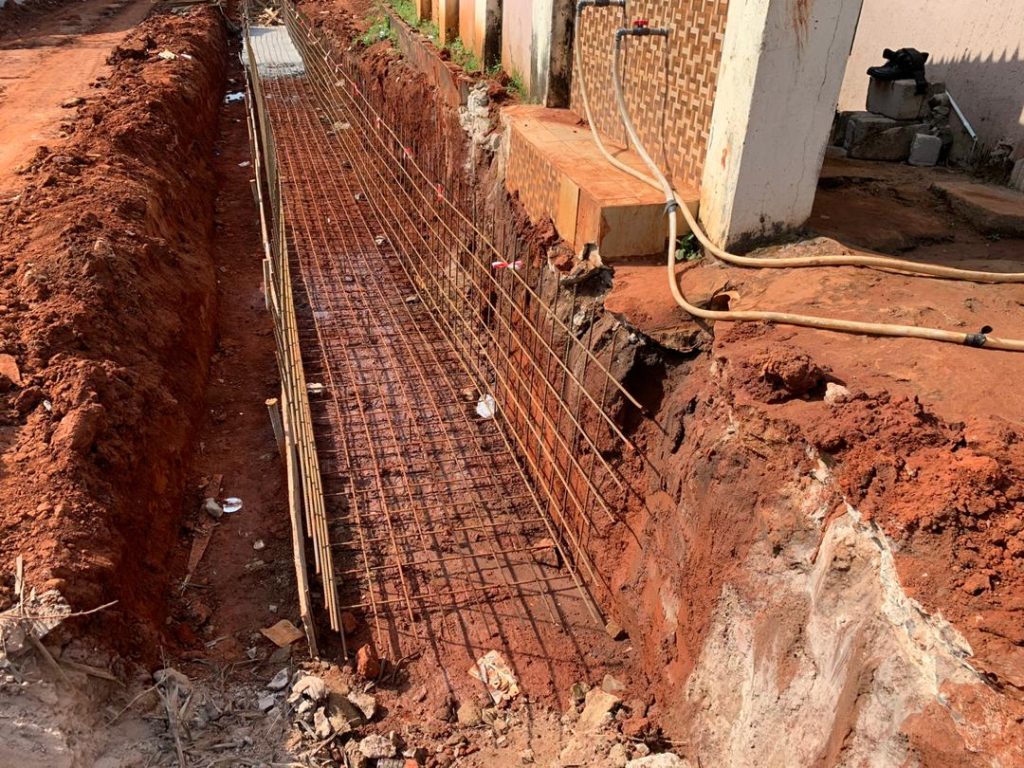
Evaluating the Success and Effectiveness of Existing Drainage Systems for Managing Rainwater Runoff in Nigeria
By John Cee Onwualu (FNSE, FNICE, FNIWE, P.E., R.ENG)
Introduction
Like many other countries, Nigeria faces the challenge of managing rainwater runoff effectively.
The country’s rapid urbanisation and population growth have led to an increase in impervious surfaces, which in turn has resulted in increased runoff and flooding.
This article aims to evaluate the success and effectiveness of existing drainage systems in Nigeria, focusing on their ability to manage rainwater runoff.

Background
Rainwater runoff is the flow of water that occurs when precipitation falls on the land surface and flows over the ground, rather than infiltrating into the soil.
In urban areas, rainwater runoff can cause significant problems, including flooding, erosion, and water pollution.
To mitigate these issues, drainage systems are designed and implemented to collect, convey, and dispose of rainwater runoff.

Existing Drainage Systems in Nigeria
Nigeria has a variety of drainage systems in place, including open channels, closed conduits, and combined systems.
These systems are designed to manage rainwater runoff in both urban and rural areas. However, the effectiveness of these systems varies depending on factors such as design, maintenance, and the intensity of rainfall events.


Open Channels
Open channels, also known as surface drains, are Nigeria’s most common type of drainage system. These channels are typically constructed using concrete, stone, or earth materials.
They are designed to convey rainwater runoff to a suitable outlet, such as a river or a stormwater detention basin.
While open channels are relatively inexpensive to construct and maintain, they can be prone to blockages and sedimentation, which can reduce their effectiveness in managing rainwater runoff.
In addition, open channels can pose a safety risk to the public, as they can be a breeding ground for mosquitoes and other disease vectors.

Closed Conduits
Closed conduits, such as pipes and culverts, are another type of drainage system used in Nigeria.
These systems are designed to convey rainwater runoff underground, which can help to reduce the risk of flooding and erosion.
However, closed conduits can be more expensive to construct and maintain than open channels, and they can also be prone to blockages and sedimentation.

Combined Systems
Combined systems, which consist of both open channels and closed conduits, are used in some areas of Nigeria to manage rainwater runoff.
These systems can be more effective than either open channels or closed conduits alone, as they can provide a more comprehensive solution to managing rainwater runoff.
However, combined systems can be more expensive to construct and maintain than either open channels or closed conduits alone.

Evaluating the Success and Effectiveness of Existing Drainage Systems
To evaluate the success and effectiveness of existing drainage systems in Nigeria, several factors must be considered, including:
1. Design
The design of a drainage system plays a crucial role in its ability to manage rainwater runoff effectively.
A well-designed system should be able to convey rainwater runoff to a suitable outlet without causing flooding or erosion.
2. Maintenance
Regular maintenance is essential for ensuring the effectiveness of a drainage system.
Blockages, sedimentation, and other issues can reduce the effectiveness of a drainage system, leading to increased flooding and erosion.
3. Rainfall intensity
The intensity of rainfall events can have a significant impact on the effectiveness of a drainage system.
A system that is designed to manage rainwater runoff during moderate rainfall events may not be effective during more intense rainfall events.
4. Urbanisation and land use
Rapid urbanisation and land use changes in Nigeria can have a significant impact on the effectiveness of existing drainage systems.
Increased impervious surfaces can lead to increased runoff and flooding, which can overwhelm existing drainage systems.

Conclusion
The success and effectiveness of existing drainage systems in Nigeria depend on several factors, including design, maintenance, rainfall intensity, and urbanisation.
While open channels, closed conduits, and combined systems are all used in Nigeria to manage rainwater runoff, each system has its advantages and disadvantages.
To ensure the effectiveness of drainage systems in Nigeria, it is essential to consider these factors and implement appropriate solutions to manage rainwater runoff effectively.
References:
- https://core.ac.uk/download/pdf/79124969.pdf
- https://www.greenhabitat.ng/the-need-for-efficient-drainage-system-in-nigerian-cities/
- https://www.grin.com/document/953132?lang=en
- http://repository.futminna.edu.ng:8080/jspui/bitstream/123456789/4942/1/CHALLENGES%20OF%20DRAINAGE%20SYSTEMS%20IN%20NIGERIA%20CONFERENCE.pdf